Contents
| |||||
| Decades: | |||||
|---|---|---|---|---|---|
| See also: | Other events of 1873 List of years in Argentina | ||||
Events in the year 1873 in Argentina .
| |||||
| Decades: | |||||
|---|---|---|---|---|---|
| See also: | Other events of 1873 List of years in Argentina | ||||
Events in the year 1873 in Argentina .

Domingo Faustino Sarmiento was an Argentine activist, intellectual, writer, statesman and President of Argentina. His writing spanned a wide range of genres and topics, from journalism to autobiography, to political philosophy and history. He was a member of a group of intellectuals, known as the Generation of 1837, who had a great influence on 19th-century Argentina. He was particularly concerned with educational issues and was also an important influence on the region's literature.
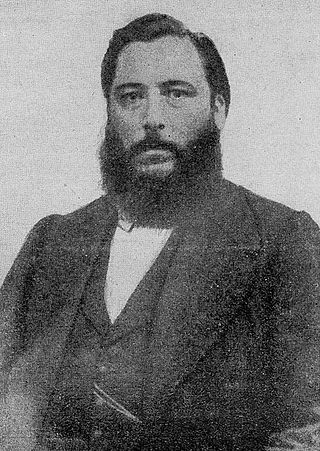
José Hernández was an Argentine journalist, poet, and politician best known as the author of the epic poem Martín Fierro. In his tribute, his birthday is celebrated as a national argentinian holiday, called Tradition Day.
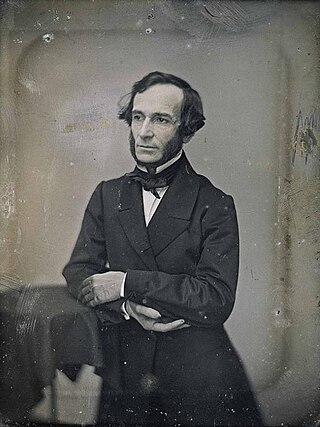
Juan Bautista Alberdi was an Argentine political theorist and diplomat. Although he lived most of his life in exile in Montevideo, Uruguay and in Chile, he influenced the content of the Constitution of Argentina of 1853.
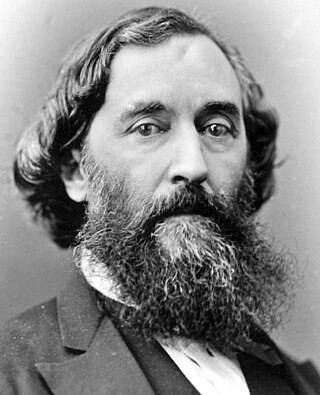
Bartolomé Mitre Martínez was an Argentine statesman, soldier and author. He was President of Argentina from 1862 to 1868 and the first president of unified Argentina.

Manuel Pedro Quintana Sáenz was the President of Argentina from 12 October 1904 to 12 March 1906. He died in office.
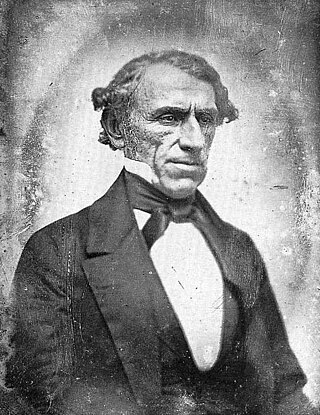
Dalmacio Vélez Sarsfield was an Argentine lawyer and politician who wrote the Civil Code of Argentina of 1869, which remained in force until 2015, when it was replaced by the new Código Civil y Comercial de la Nación.

Josefina Passadori was an Italian-Argentine academic, educator, and writer. She published several textbooks as well as poetry under the pen name Fröken Thelma.

Vicente Carmelo Gallo was an Argentine lawyer, academic, politician, and member of the Radical Civic Union and the Antipersonalist Radical Civic Union.

The Domingo Faustino Sarmiento Railway (FCDFS), named after the former Argentine president, statesman, educator, and author Domingo Faustino Sarmiento, is one of the six state-owned Argentine railway divisions formed after President Juan Perón's nationalisation of the Argentine railway network in 1948. The six companies were managed by Ferrocarriles Argentinos which was later broken up during the process of railway privatisation beginning in 1991 during Carlos Menem's presidency.

José Ignacio García Hamilton was an Argentine writer, noted historian, lawyer and politician. He was elected to the Argentine Chamber of Deputies for the Radical Civic Union representing Tucumán Province.

Ricardo Ramón López Jordán (1822–1889) was an Argentine soldier and politician, one of the last influential "caudillos" in the history of Argentina. He thrice rebelled against the government of Buenos Aires and was defeated in each attempt.
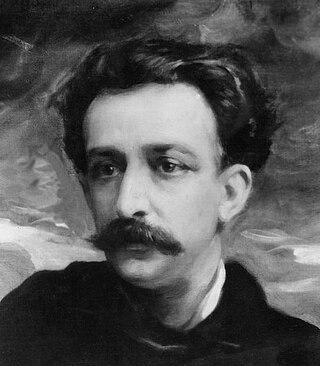
José Manuel Estrada was an Argentine lawyer, writer, politician, eminent speaker and representative of Catholic thought.
Events from the year 1942 in Argentina
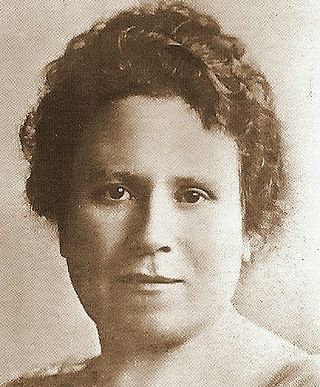
Julieta Lanteri was an Argentine physician, leading freethinker, and activist for women's rights in Argentina as well as for social reform generally.
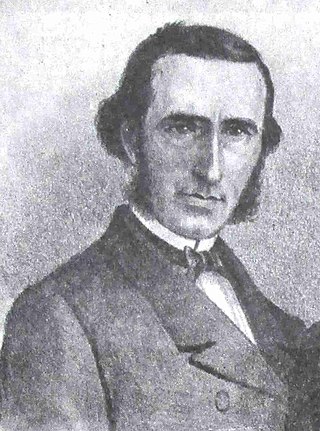
Luis Lorenzo Domínguez (1819–1898) was an Argentine politician, poet, historian, journalist and diplomat. In addition, he was the Minister for Economic Affairs for Argentina and served as an ambassador for Argentina to the United States and the United Kingdom and Spain.

Events in the year 1870 in Argentina.
Events in the year 1871 in Argentina.
Events in the year 1875 in Argentina.
Events in the year 1868 in Argentina.
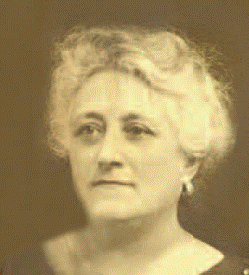
Sara Justo was an Argentine women's rights activist, educator and dentist. She was a leader in the women's rights movement of Argentina early in the 20th century, supporting women's suffrage and co-founding both the Women's Pro-Suffrage Committee and the Feminist Center of Argentina. She was one of the first four women dentists in Argentina, graduating from the University of Buenos Aires in 1901.